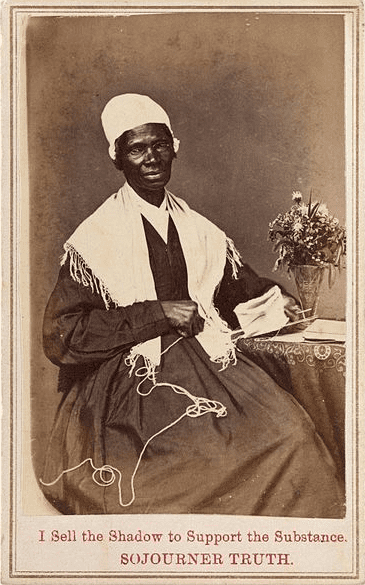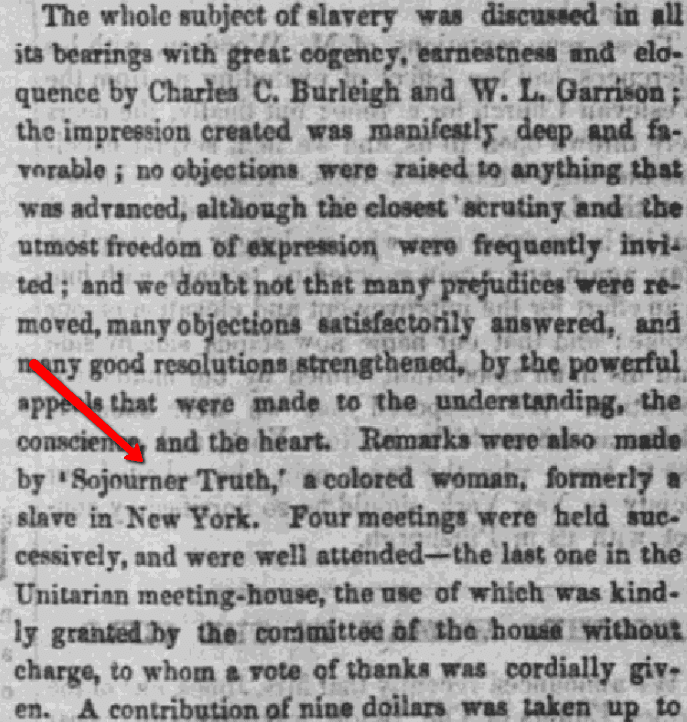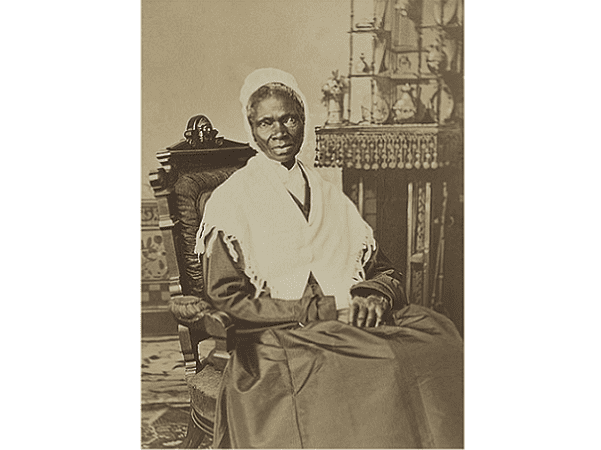Introduction: In this article, to help celebrate Black History Month, Jane Hampton Cook searches old newspapers to learn more about Sojourner Truth, including her meeting with Abraham Lincoln in October 1864. Jane, the former White House webmaster for President George W. Bush, is a presidential historian and the author of nine historical books. She is a consultant for the Women’s Suffrage Centennial Commission. Her works can be found at janecook.com.
Sojourner Truth, an escaped slave who became an abolitionist and women’s rights advocate, is often celebrated during Black History Month. This year, historians are also highlighting her women’s rights contributions because 2020 marks the 100th anniversary of women winning the right to vote.

Who was Sojourner Truth? Abraham Lincoln knew who she was even before he met her at the White House in October 1864. The president told her that he had heard of her many times before.
This was quite the compliment. Thanks to the articles in GenealogyBank’s Historical Newspaper Archives, it’s possible to see how Lincoln and others could have read about her in newspapers in the decade before the Civil War.
Born into slavery in 1797 in New York, Isabella Baumfree escaped in 1826 and changed her name to Sojourner Truth in 1843, with the mission of preaching God’s truth – including as an abolitionist and women’s rights activist. Her slave story, Narrative of Sojourner Truth, was published in 1850 to show the horrors of slavery and encourage political leaders to abolish it. This publication gave her opportunities to speak.
In an article about an anti-slavery convention held in Uxbridge, Massachusetts, the Liberator reported that Sojourner Truth delivered remarks to the audience.

Sojourner’s name appeared in the press several times in 1851, when she spoke at a women’s rights convention in Ohio. The best account of her speech was published by the Anti-Slavery Bugle.
“It is impossible to transfer it [Sojourner’s speech] to paper, or convey any adequate idea of the effect it produced upon the audience,” the reporter wrote, longing for video technology that didn’t exist. “Those only can appreciate it who saw her powerful form, her whole-souled, earnest gestures, and listened to her strong and truthful tones.”
The paper quoted part of her speech:
“You need not be afraid to give us our rights for fear we will take too much, for we can’t take more than our pint’ll hold. The poor men seem to be all in confusion, and don’t know what to do. Why children, if you have woman’s rights give it to her and you will feel better. You will have your own rights, and they won’t be so much trouble.”
This speech, her newspaper coverage, and her published narrative made her a renowned figure when she met Abraham Lincoln. Newspapers reported their meeting.
This article reported:
“A Washington correspondent of The Rochester Express says: ‘Sojourner Truth (whom everybody knows) is in the city, having come here expressly to visit Mr. Lincoln, and express to him her thanks for his proclamation freeing so many of her race.’”
Sojourner published her version of their meeting in the Liberator.
She reported this exchange:
“‘Mr. President, when you first took your seat, I feared you would be torn to pieces, for I likened you unto Daniel, who was thrown into the lions’ den. And if the lions did not tear you into pieces, I knew that it would be God that had saved you; and I said if He spared me I would see you before the four years expired, and He has done so, and now I am here to see you for myself… I appreciate you, for you are the best President who has ever taken the seat.’
“He replied thus:
“‘I expect you have reference to my having emancipated the slaves in my Proclamation, but’ said he, mentioning the names of several of his predecessors, and particularly Washington, ‘they were just as good, as would have done just as I have if the time had come.’
“‘I thank God you were the instrument selected by Him and the people to do these things.’”
Both appreciated the other. Lincoln showed his affection in a book he signed for her: “For Aunty Sojourner Truth, Oct. 29, 1864. A. Lincoln.”
Thanks to the newspapers of the time – and their preservation in today’s digital world – their meeting was recorded into history.
